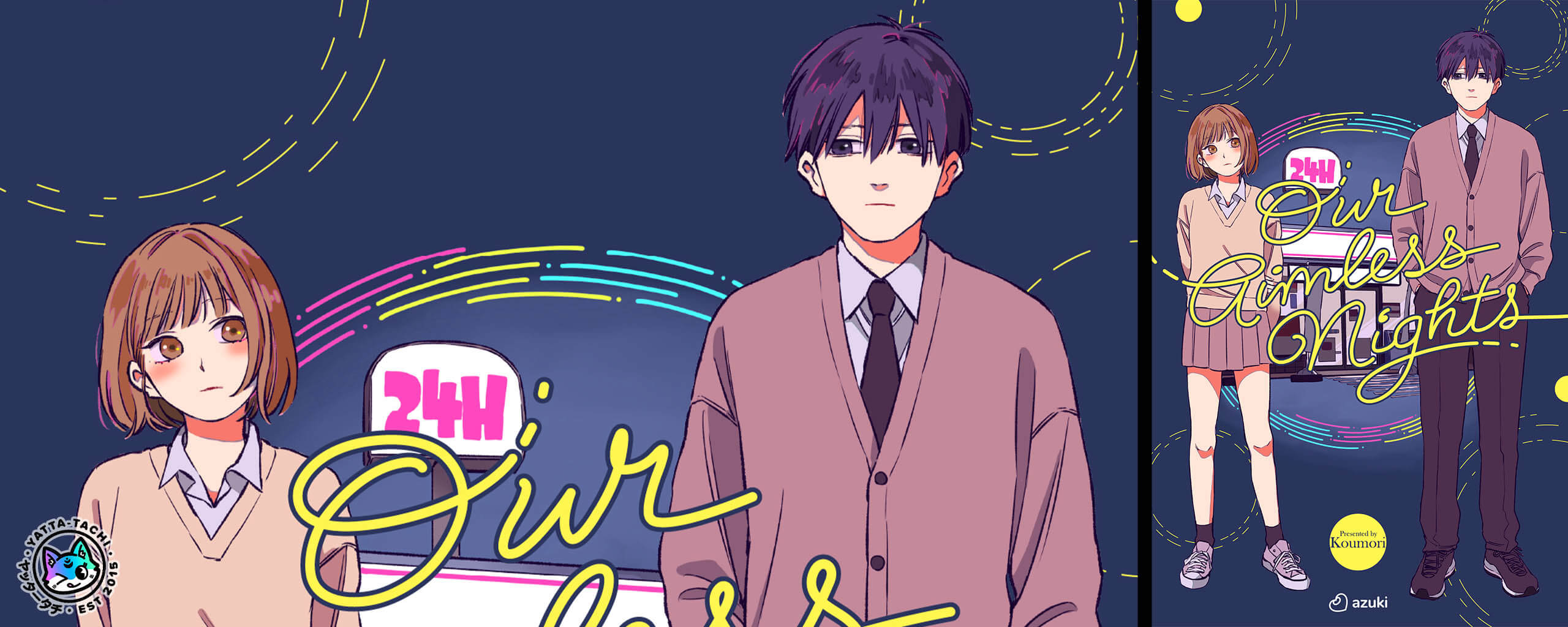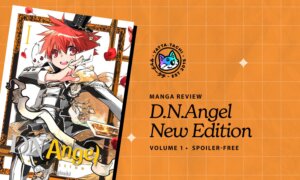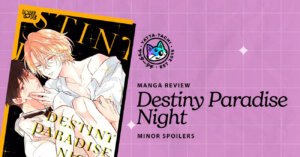This article contains minor spoilers behind a spoiler tag relating to chapters not yet released on Azuki at the time of this article’s publication.
A trend I’ve noticed in recent web manga is “nocturnal romantic isolation.” Two people meet outside their communities in a place where they may express themselves in ways they normally can’t. The two talk, spend time together and eventually fall in love. An example is Smoking in the Supermarket With You, about a salaryman going on smoke breaks with a mysterious grocery store worker. Something about this structure lends itself to bite-sized slice-of-life stories that capture the ambiguity of modern life.
Our Aimless Nights is yet another manga in this mold. Drawn by Koumori and published in the United States by the manga app Azuki, it’s the story of high schoolers Chika and Waya. Waya is a shy kid who rarely talks at school, but is kind to the employees and customers at the convenience store where he works part-time. Chika meets him there one night and discovers a kindred spirit. The two make a routine of chatting for ten minutes each night. Slowly but steadily Chika and Waya grow closer.
The Good
These kinds of stories are often distinguished by their target audience. For instance, Smoking in the Supermarket With You gets a lot of mileage out of the protagonist’s mysterious smoking partner. The reader can project themselves into the character and ask themselves, “what if I could smoke with a cool girl behind a supermarket every night?” What I appreciate about Our Aimless Nights, though, is that both Chika and Waya are into each other. Chika is attracted to Waya’s kindness. Waya admires Chika’s spontaneity. The two of them trade off being made surprised and vulnerable by their intense feelings. This isn’t a requirement for a good romance, but it’s a nice change of pace from the norm.
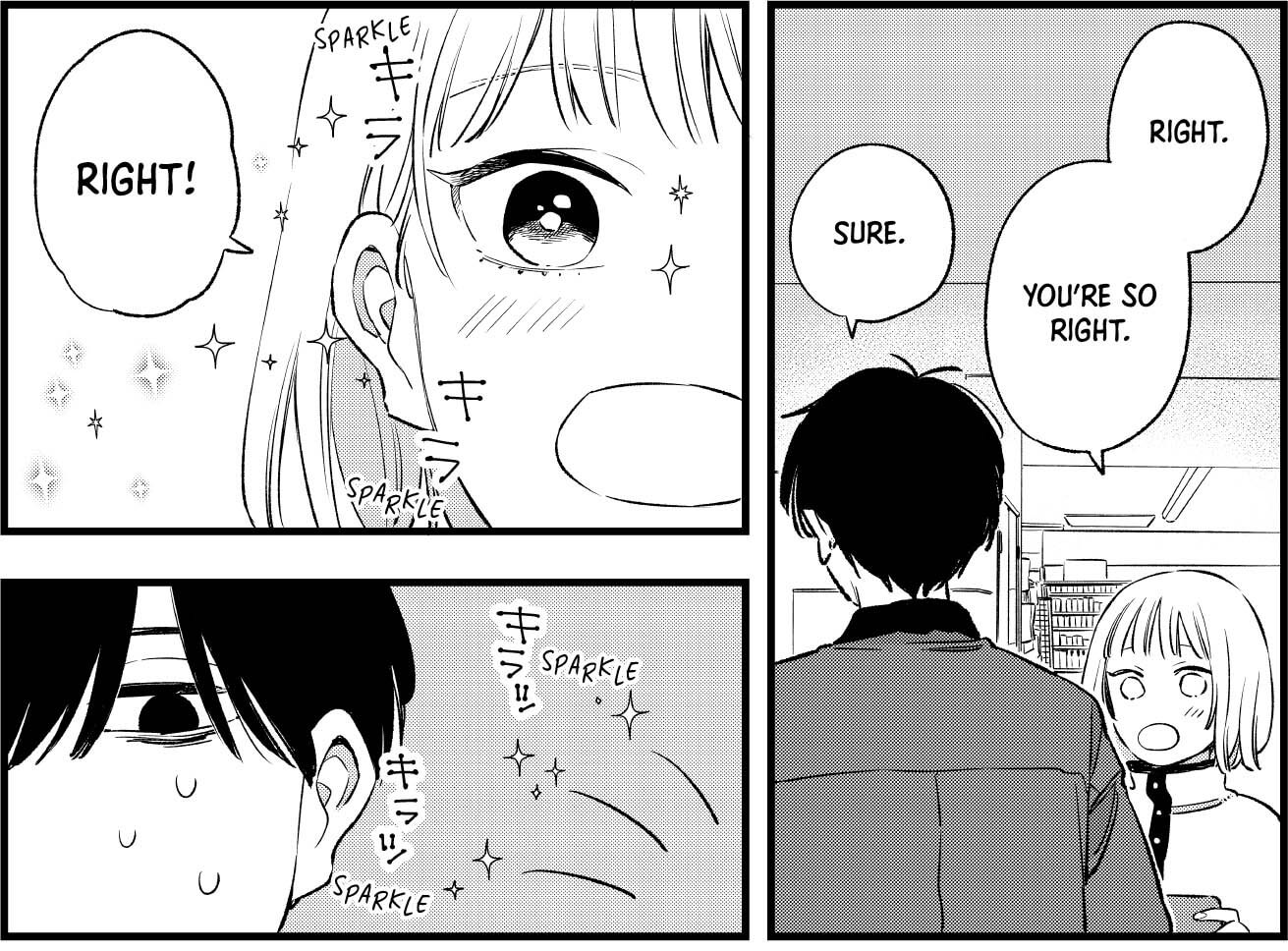
Another enjoyable part of the comic is watching how Chika and Waya change as they spend more time with each other. Waya receives the most development, since he has the furthest to go. There’s a rewarding scene where he asks Chika for her contact info, several chapters after Chika has already decided he would never ask that from her. Chika on the other hand must navigate Waya’s gruff outer persona. While she lacks Waya’s coherent arc, the artist at least does a good job characterizing her via her posture, clothes and expressions. She’s lively on the page in the way that stoic Waya is not.
Something that stood out to me is that Chika and Waya bond because both their parents have divorced. Families are often ignored in these school slice-of-life stories. This has not yet come up again, but I thought it was worth pointing out when many comics in this vein assume the nuclear family as the default.
The Not-so-good
When telling a genre story, you must find an angle that sets your work apart from the crowd. For instance, Smoking in the Supermarket With You is about adult protagonists and features a cool smoking girl. Another recent favorite, The Guy She Was Interested In Wasn’t a Guy at All, has the protagonists bond over their love of music. The comic’s use of the color green also sets it apart from most print manga.
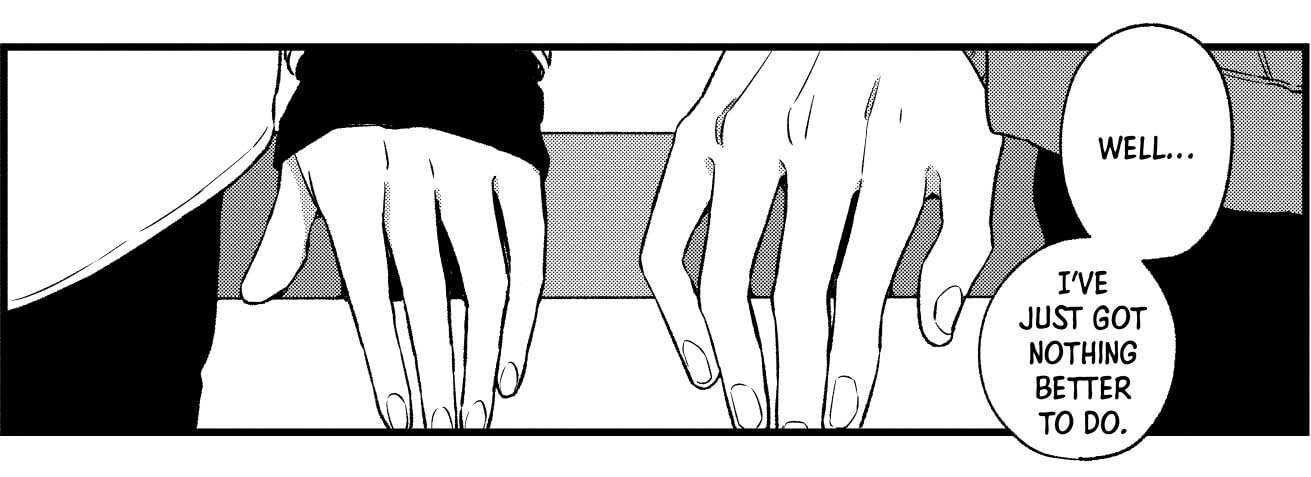
Our Aimless Nights lacks an angle. For instance, Waya’s part-time-job at the supermarket represents a storytelling opportunity. But since his time with Chika is mostly spent outside, the supermarket is a non-factor. So far the reader has not learned much about what it’s like to work at a supermarket or what other employees or customers Waki meets on a day-to-day basis. Far more time is spent in high school with Chika and her friends. These scenes aren’t bad, but they don’t do much to distinguish themselves from the ocean of high school manga material.
Koumori also struggles to build a network of side characters at school. Chika’s friends have appealing designs but are hardly differentiated from each other in terms of personality.
Show Spoiler It takes until nearly the end of the review material for two other named characters, Takeru “Shibaken” and Mako, to distinguish themselves. Their personalities generate much more friction than Chika or Waya, so I’m curious to see how they might shake things up in future chapters.
Verdict
Our Aimless Nights is a simple but effective school romance. In that respect it’s just about right for a comic you can read on your phone. That said, there’s little to set it apart from its peers, and Koumori hasn’t yet found the secret ingredient to take their story over the top. I’d check the series out if you have an Azuki subscription and are hungry for quiet pining. Otherwise I’d recommend something with more verve, like Tsuredure Children or even Young, Alive, In Love.
You can read Our Aimless Nights on Azuki.
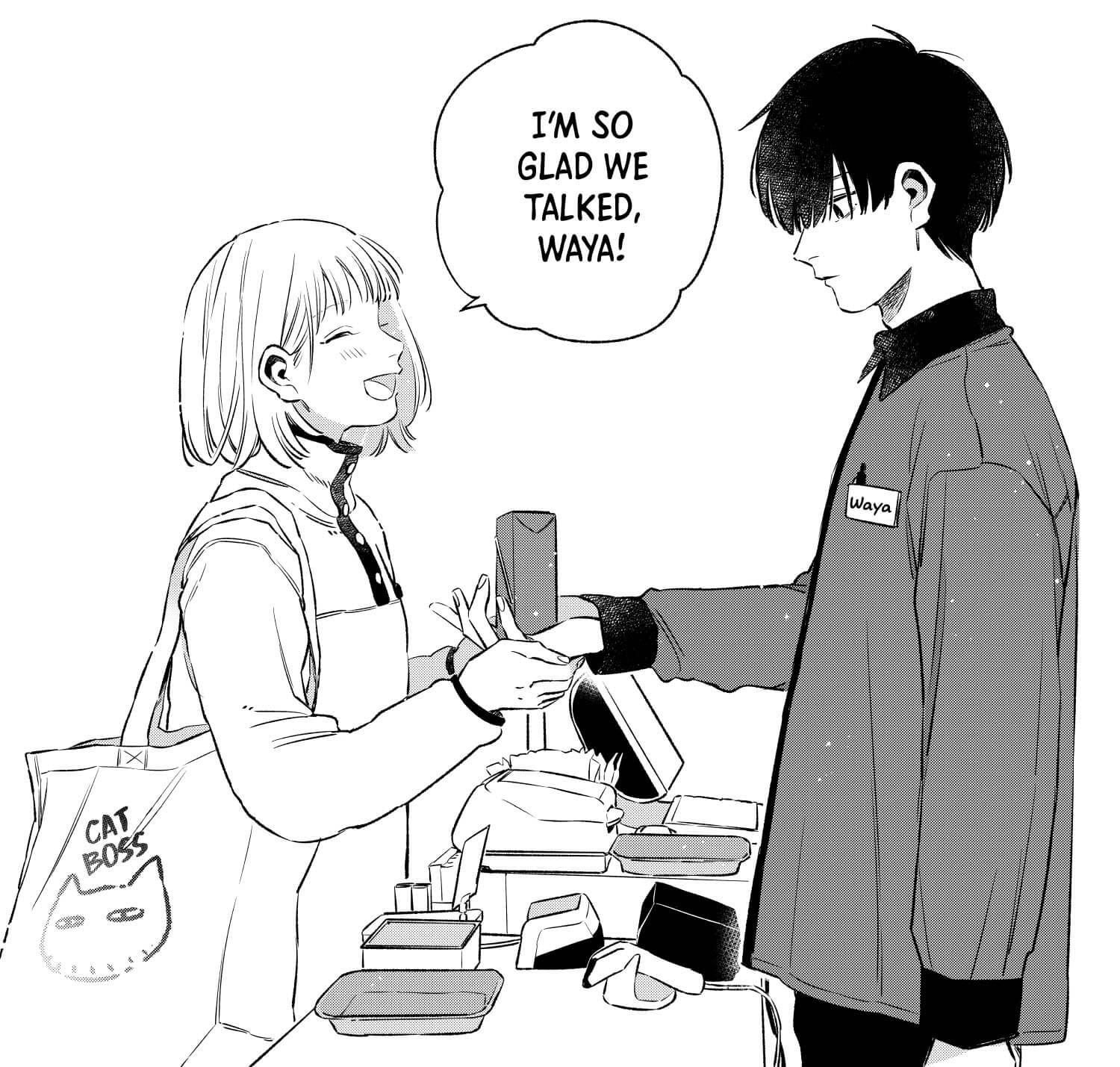
If you liked Our Aimless Nights, you might also like…
Credits
Manga by Koumori
Translator Jan Mitsuko Cash
Translation Editor Sarah B
Cover Designer Glen Isip
Quality Control Editor D.S. Jay
Brand Manager Evan Minto
Production Manager Cynthia Kim
A special thank you to Azuki Comics for allowing us the opportunity to review this title. Receiving a review copy has in no way altered the opinions expressed in this article.
The Good
- Leads are charming
- Functional art and character design
- Low stakes, easy-going appeal
The Bad
- Lacks a real hook
- Characters, setting follow genre boilerplate

Featured Sponsor - JAST
The sweetest romance and the darkest corruption, the biggest titles and the indie darlings; for visual novels and eroge, there's nowhere better.
Big thank you to our supporters
From their continous support, we are able to pay our team for their time and hard work on the site.
We have a Thank-You page dedicated to those who help us continue the work that we’ve been doing.
See our thank you page